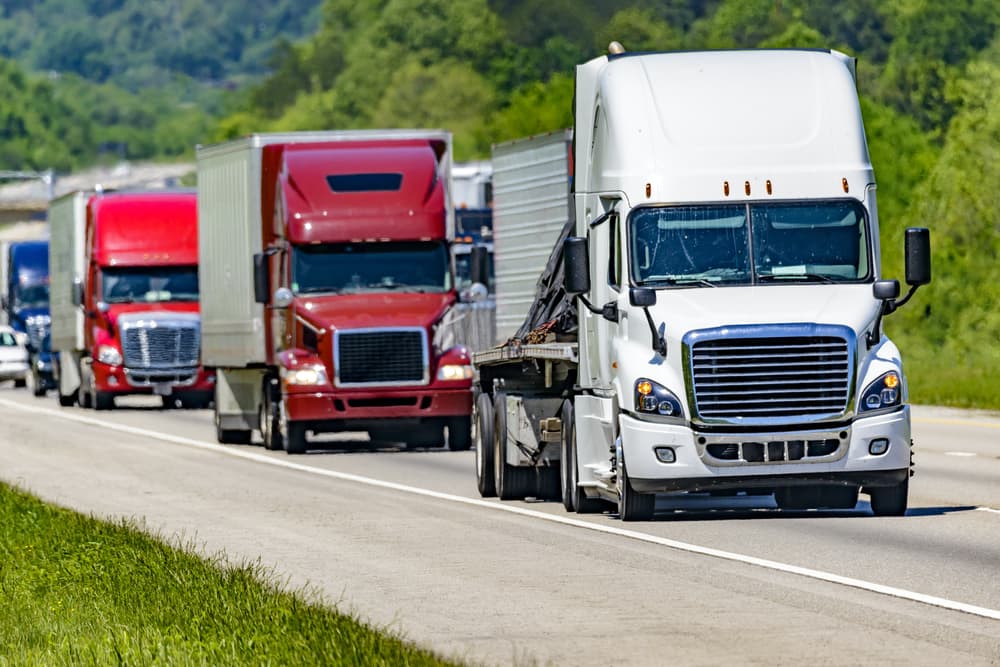Avoiding the Most Common Causes of Flatbed Truck Accidents
Flatbed trucks help transport goods across the country, from construction equipment that needs to move through the city to large, bulky items that need to move long distances. Unlike semi trucks with enclosed trailers, flatbed trucks typically use straps to hold down cargo on a long, flat bed. Operators usually take care to check the straps and cargo at each stop. Nevertheless, flatbed trucks can pose unique hazards. If have suffered serious injuries in a trucking accident, the
Chicago truck accident lawyers from Abels & Annes can help you get the compensation you deserve for your injuries.
As a driver, you cannot always avoid accidents with big trucks, including flatbed trucks. You can, however, significantly decrease your risk of an accident by following a few simple guidelines.
1. Falling or Shifting Cargo
Sometimes, the driver or the party that loads a flatbed may fail to properly load the cargo. If the straps come loose, the cargo may start to slip. The driver may not even realize that the cargo came loose until too late. Shifting cargo, or cargo that the loaders did not secure properly, can also raise the risk of jackknife accidents or rollover accidents.
To avoid a falling cargo accident, pay careful attention to the cargo on flatbed trucks. If you notice the cargo swaying or slipping, widen the distance between you and the truck. If you can, try to signal the driver about the problem, but do not place yourself at risk to do it. Also, pay attention to flags on that cargo, which can indicate cargo that hangs over the side of a vehicle.
2. Speeding
Increasing
speed by just a little bit can increase accident rates by as much as 3 percent. Unfortunately, some truck drivers choose to ignore speed limits and live with the risks, especially if they need to meet deadlines or near the end of their
legally limited time on the road.
Maintain a safe rate of speed, as set by the speed limit, whenever you drive. Do not try to pressure other drivers on the road, including truck drivers, to increase their rate of speed. Leave plenty of room for a truck driver to maneuver, rather than trying to force your way into space occupied or needed by the truck.
3. Jackknife Accidents
In a
jackknife accident, the trailer swings around past the cab, out of control of the driver. Often, the flatbed’s cargo makes it heavier than the truck’s cab, which can make it incredibly difficult for the driver to regain control of the vehicle.
At high rates of speed, jackknife accidents become more common. Drivers may also have a higher likelihood of jackknife accidents if they must maneuver abruptly, often in an attempt to avoid an impact with another vehicle on the road. To help decrease the risk of jackknife accidents, exercise caution around flatbed trucks. Do not cut off a flatbed truck, and keep an appropriate distance when traveling at high speeds.
4. Inebriated, Exhausted, or Distracted Drivers
In many cases, driver error can lead to substantial accident risk. Flatbed drivers often spend many hours behind the wheel each day. They may suffer from high rates of fatigue. Because they spend long hours on the road alone, away from their families and friends, truck drivers may also struggle with
excessive drinking, which sometimes extends to drinking and driving or driving while intoxicated.
Drivers may also grow too comfortable behind the wheel and engage in distractions they should not while driving, including talking on the phone, texting, eating and drinking, or even working with a GPS device instead of paying attention to the road.
You cannot avoid every potential accident on the road, nor can you control the actions of flatbed truck drivers.
You can, however, take several steps to decrease your risk of accident or decrease your risk of severe injuries in an accident.
- Leave flatbed trucks, in particular, plenty of room to maneuver. Some flatbeds, including those that carry cargo that exceeds the size of the trailer, may have chase cars to help keep other vehicles from getting too close. Those vehicles may get a substantial distance away from the flatbed and its cargo. You should never attempt to get between the chase vehicles and the flatbed. Always leave plenty of room for a flatbed truck driver to complete turns, stops and starts, and lane changes.
- Back off and leave more room if you notice a truck driver driving a flatbed erratically. It can help to leave plenty of time for your trips, so you do not have to stress about completing your journey sooner than necessary. If you notice a driver swerving or struggling to control the vehicle, get out of the way. You may want to notify the police if you notice erratic or dangerous behavior on the road. If you do need to call the police, make sure you pull off the road to a safe location before making the call.
- Stay aware of the truck driver’s blind spots. The blind spots a flatbed driver faces may change based on the cargo he needs to haul at any given time. As a result, he may be less aware of his blind spots than a driver who operates a tractor trailer. Make sure you stay out of the truck driver’s blind spots whenever possible.
- Try not to get between a flatbed and a sharp drop. On steep inclines or a steeply graded road, in particular, the truck driver may struggle to maintain control of his vehicle. Try not to get between the truck driver and an incline or drop. If you cannot increase your speed to get past the truck, you may want to fall back behind the truck.
As a driver, you can take many steps to help decrease your risk of an accident, but you may not have the ability to avoid every potential accident on the road. If you do suffer serious injuries in an accident, a
Chicago truck accident attorney can help you get the compensation you deserve for your injuries. Do not wait to
contact one of Abels & Annes Chicago truck accident attorney following your accident.
David Abels
Partner
David Abels has carved a niche for himself in the personal injury law sector, dedicating a substantial part of his career since 1997 to representing victims of various accidents. With a law practice that spans over two decades, his expertise has been consistently recognized within the legal community.
Author's Bio



